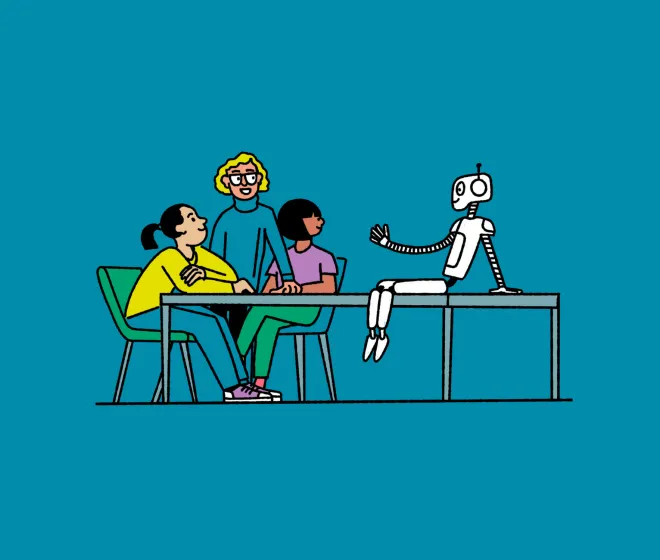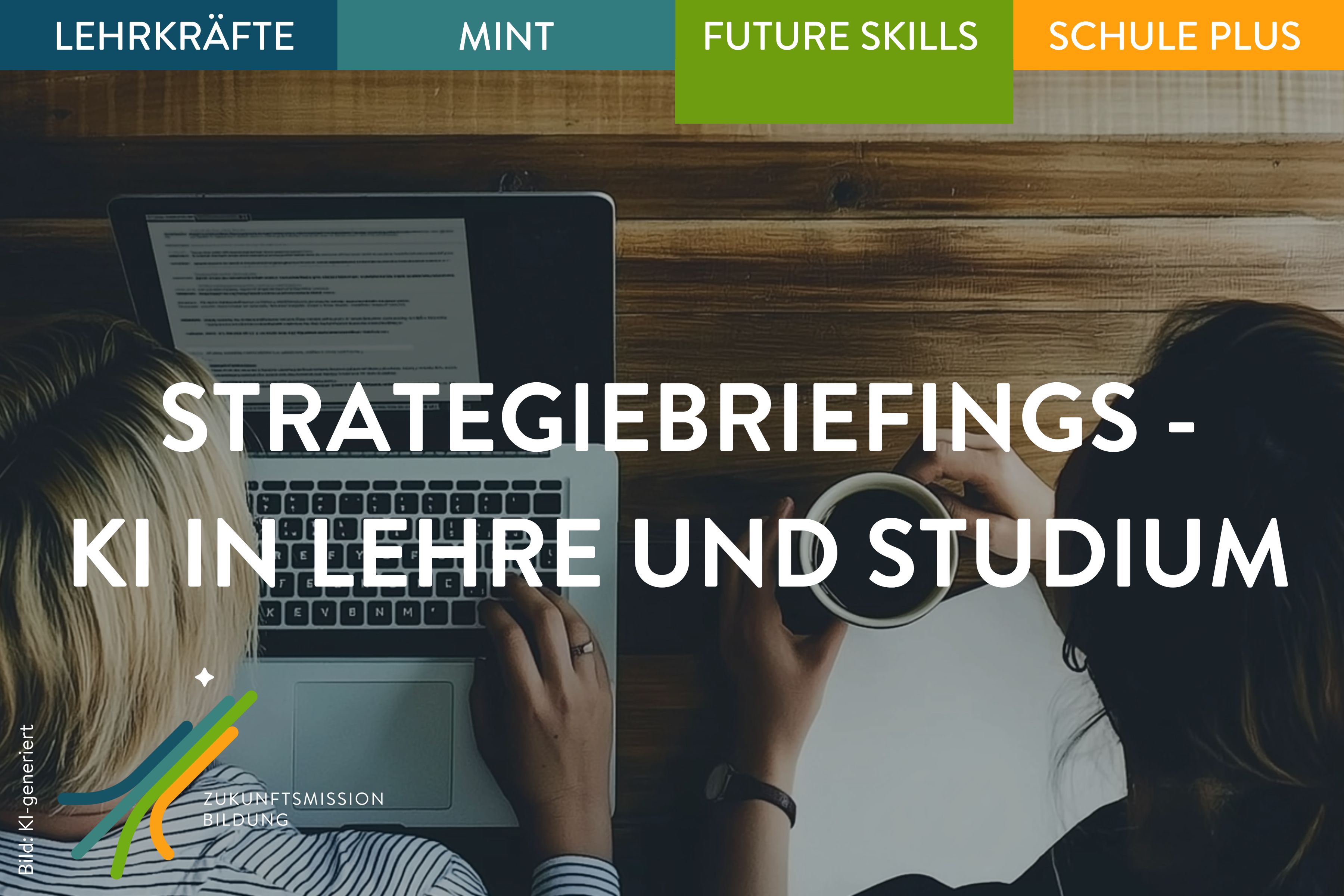Impulses for the Future: Alliance for Future Skills Strengthens AI Education at Universities


Whether adaptive learning systems, automated examination formats, or intelligent assistance systems in research and administration: the use of AI in higher education holds enormous potential, but at the same time poses major challenges for instructors, learners, and university structures.
To actively shape this transformation, strategic orientation, broad participation, and targeted skill development are required. With the Alliance for Future Skills within the framework of the Education Mission for the Future, the Stifterverband promotes the integration of future skills and AI competencies into study and teaching. A key role is played by the creation of thematic taskforces in which subject experts work together for one year, formulate their own goals, and recommend concrete actions for implementation.
The “AI in Higher Education” Taskforce, co-led by Niels Pinkwart (Vice President for Teaching and Studies, Humboldt University of Berlin) and Isabella Buck (Head of Competence & Career Center, RheinMain University of Applied Sciences), aims to establish AI as an important aspect of strategic university planning. It develops recommendations for embedding AI qualification and AI infrastructures in higher education. Its target audience comprises both universities and political decision-makers, whom the taskforce aims to guide on further developing study programs, learning environments, and support structures.
The taskforce values diversity and expertise: it brings together representatives from university management, support units, businesses, and students who are already visibly engaged with AI in higher education. This multi-perspective composition allows developments from practice, research, and education strategy to be explored together.
Strategy Briefings as Orientation Aids
A key format already launched by the taskforce is the regular “Strategy Briefings – AI in Teaching and Learning”, which provide information on current developments in AI and encourage reflection. Central questions include:
- What political and social frameworks must be considered when implementing AI at universities?
- What does appropriate compliance with legal requirements for AI use at universities look like?
- What challenges do instructors and learners face when AI-generated content becomes increasingly significant in academia?
The briefings are offered online and are aimed at strategic decision-makers in universities and politics, providing concise knowledge, impulses, and recommendations from the Alliance for Future Skills network. The briefings not only raise the visibility of these topics but also serve as an invitation to contribute to shaping digital transformation in higher education. They provide an opportunity to gain direct insight into the work of the taskforce. For more information and the current briefing dates, click here.
Strategic Future Scenarios – AI at Universities 2030-35
In addition, within the framework of a future workshop, the taskforce is developing scenarios to illustrate how teaching and learning at universities will have changed over the next decade. The goal is to spark discussion on strategic questions that universities need to answer now. The scope for action on the path ahead will be outlined. Through a moderated process involving all taskforce members, these scenarios will be formulated and specified. The results of the future workshop will be supplemented by qualitative interviews with experts and will ultimately culminate in a publication to be released by the end of the year.
The future workshop marks the beginning of a three-stage process:
- Scenario Development (June 2025): In a facilitated workshop ("Future Workshop"), possible and desirable future visions for AI in higher education are developed—guided by technological, societal, and educational policy changes.
- Closing Knowledge Gaps (July to August 2025): In a second phase, open questions are explored in depth based on interviews with experts and research, in order to substantiate the scenarios.
- Publication (by October 2025): In an iterative, co-creative process, a publication is produced that documents strategic recommendations for universities and policymakers and is made publicly available.
The publication aims to be practice-oriented and adaptable—with concrete impulses for university development, degree program design, and infrastructure planning.
Outlook: Contributing to the Transformation of University Teaching
The work of the “AI in Higher Education” taskforce shows how systematic reflection and strategic cooperation can help shape the digital transformation of universities proactively. With formats such as the strategy briefings and the future workshop, it not only makes analytical contributions but also operational ones to the ongoing development of university teaching in the age of AI.
Universities that want to set the course for the future today will find valuable points of connection in the taskforce and on the AI Campus. The message is: anyone wishing to promote AI competencies needs to start today. The taskforce lays the strategic foundation for this. In our LinkedIn group “Alliance for Future Skills” we regularly provide insights into the work of the taskforces. Feel free to join!

Stefan Göllner is Innovation Manager for the AI Campus.
He studied communication design in Düsseldorf and worked as a research associate in the fields of design research and user-centric design at the Academy of Media Arts Cologne, the Technical University of Berlin (Telekom Laboratories), and the Berlin University of the Arts. As a freelance consultant, he contributed to European R&D projects and was involved in the BMWi ‘Mittelstand Digital’ program to network medium-sized software companies. Since founding place/making Berlin in 2016, he has been committed to the free use and provision of civil society data and has implemented numerous projects in this context.
At the AI Campus, he is responsible for building the KI-ExpertLabs, which serve as think-and-do tanks for the AI Campus, and for overseeing the development of the AI Campus Hub Berlin. He also manages networking in the fields of medicine, Industry 4.0, and entrepreneurship. Through the design of communication and networking formats, he fosters partnerships and creates connections between the community team, the learning opportunities, and product development.
